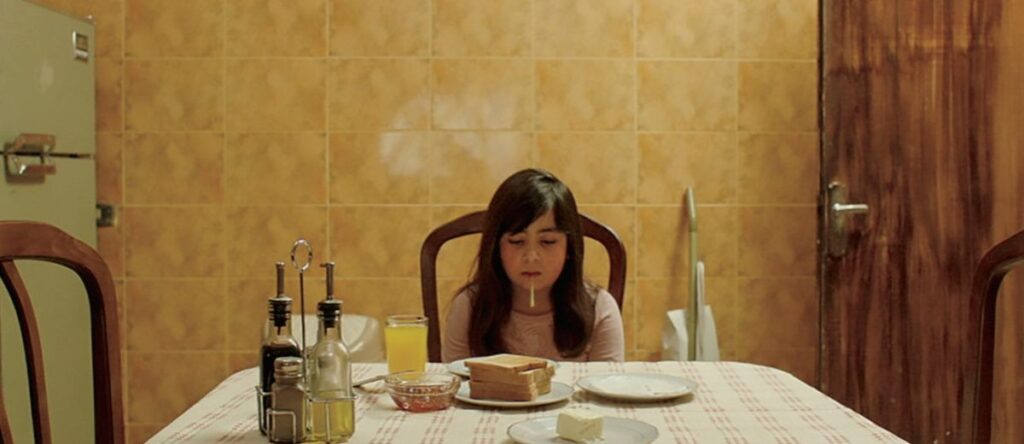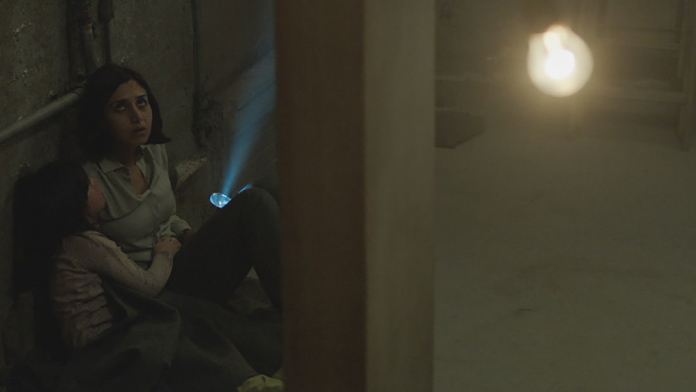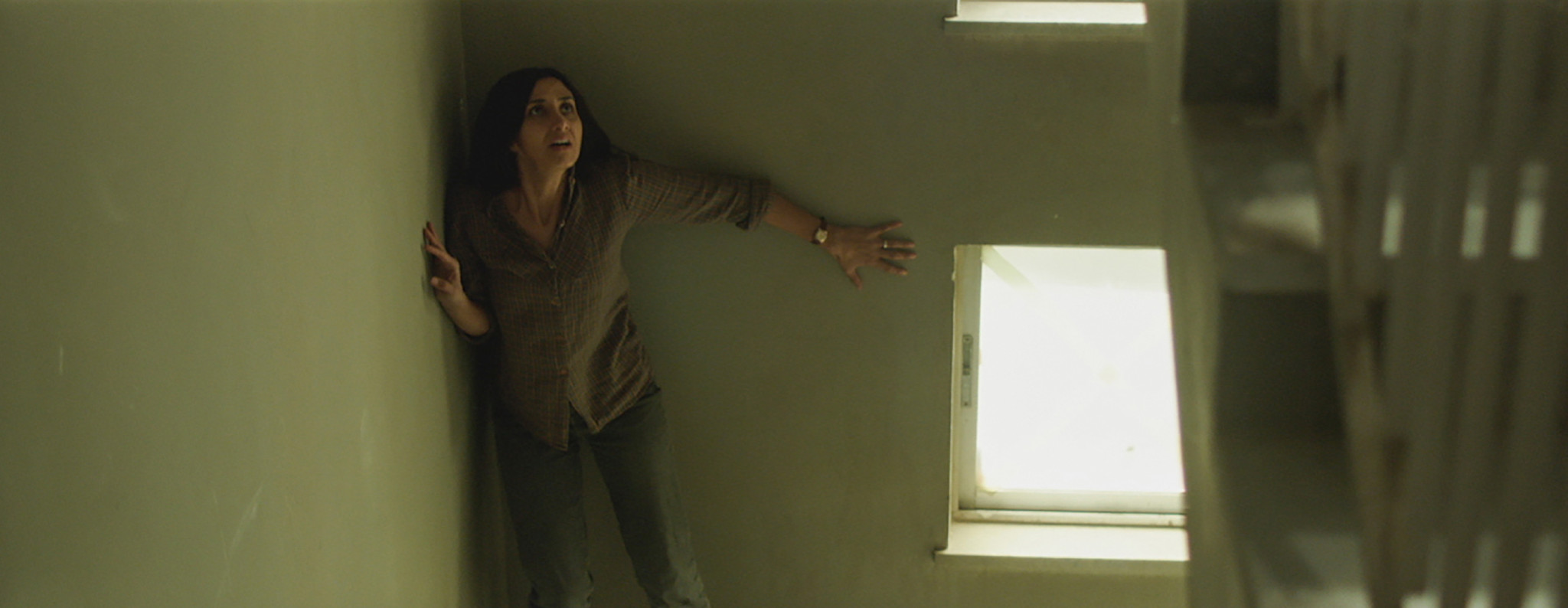Finding a really good international film – a thriller, and a scary one to boot – is really quite rare. But I enjoy them very much when I do. Why? Because it opens my mind to totally new ways of thinking and new ideas. Like for example that the United States regularly does some really dumb stuff across the International theater. Or maybe that there are other perspectives out there beyond a western-centric mindset. Regardless, I had a lot of fun with this one, so why don’t we get started shall we? Here we go: The Movie Under the Shadow Ending Explained!!
So, before we go further, go watch this great little Iranian film. You can get it on Netflix… which everyone has. So just go watch it, and then come back to learn more about the film. Great thanks…
A Much Too Long Iranian History Guide
I love learning new things. If you’d rather skip this bit – just jump down to the TLDR; and I’ll fill you in super quickly and you’ll be no worse for wear. But I will say that international movies like Under the Shadow are like fast tracks for learning for me. Maybe you too are equally curious? Yes, yes you are, you have to be, why else would you be here? Well, good, glad to meet a like-minded curious like myself. Under the Shadow brings with it a lot of details I already generally understood, but really needed a refresher course. A bit ago, I had a lot of fun interviewing a THiNC. reader from Iran (Programming note – I find EVERYONE interesting…and if you think you have even a little bit of an interesting story to your life, I would love to interview you. Just get a hold of me through the contact page.) and had a lot of fun talking about what the country is like right now, and how the revolution changed his family’s life. Well, today, in order to really get the most out of this movie, you’ll need to have a firm grasp on what went down in the Iranian Revolution…or also called the Islamic Revolution.
Basically, the revolution was the culmination of a series of events that was completed in the overthrow of Shah Pahlavi and his government. Jumping backwards, the Pahlavi government fueled their decadent lifestyle through oil, mainly through agreements with Great Britain. The oil from Iran helped fuel both World Wars. And yet, most of the country lived a life of poverty. The populous of Iran resented watching as Great Britain pumped the wealth directly out from under their feet. Eventually, this brought to power a Prime Minister Mossadegh, in 1951, who began creating democratic reforms to change this disparity. The biggest of changes was the nationalization of Iran’s oil infrastructure.
Great Britain was, in a word, pissed. They were worried that the Soviet Union would tap the newly nationalized oil in Iran. So England pushed to overthrow Mossadegh. Which, actually succeeded…but only for a few days, because the populace went absolutely nuts, in day after day of protests. Enter the United States. The nation with absolutely no blood on its hands at all. (Cough.) Now, the US did support Mossadegh, and his original ascension. But, our fear of communism in Iran eventually 86’d our support for the popular Prime Minister. So, in 1953, the CIA initiated a coup against Mossadegh. And we literally overthrew the leader. With that coup, we also blitzkrieged all future hope of democracy in the country. I think the technical term for that is splash back. And, boy, did this “little” operation have negative consequences for Iran and the region. After the coup, the Shah of Iran resumed control of the country. And voila, the West had its cheap oil restored, and it established a similar looking world in Iran as outside its borders. But this sentiment, Iran’s comfort with the west, was short lived.
OK, so with the setup leading to the revolution squared away… it should make more sense to western minds that might find it completely mind blowing to consider sans the backstory. Now, that brings us to October 1977…when a system of civil resistance that started with both secular and religious protests. In 1978, it blew up into full blown chaos. The burning of the Rex Cinema was seen as a pivotal moment. (Wherein 4 men doused the theater in Abadan with jet fuel, then set it alight. The attack killed at least 420 people, and was responsible for triggering the Iranian Revolution.) After which, demonstrations and strikes completely shutdown the country. The Shah fled Iran in January of 1979. And after that, the regency council in control of Iran, invited Ayatollah Khomeini to come back. Soon after, armed guerrillas attacked troops loyal to the Shah, and brought Khomeini officially to power. And, in April 1979, the country voted through national referendum to become an Islamic republic. Formally instituting Khomeini the supreme leader of the newly instituted theocratic-republican constitution.
TLDR; The Iranian Revolution
So England bilked Iran of large swaths of its oil for years and years, engendering hatred. The United States, worried about communism getting at the oil, caused a coup. This all backfired, and led to a fairly peaceful (relatively, at the time anyway) overthrow of the government. And voila – Iran becomes an Islamic Republic.

Under the Shadow Walkthrough
Now, in the aftermath of the Iran Revolution, Iraq saw some daylight to attack the country that was now not in bed with the United States or England anymore. Iraq was also worried that Iran would export Khomeini’s Iranian Revolution to the Sunnis in Iraq. The war started in 1980 and lasted more than 8 years. And it is here that are movie backdrop is set. Iraq and Iran are in a stalemate of a conflict. The two countries are just mindlessly pounding each other back to the stone age.
Which brings us to our unfortunate protagonist – a woman, Shideh (played by Narges Rashidi), who happens to be a smart, attractive mother, but unfortunately for her, she happens to have aspirations for a career in medicine. Now, as the movie opens we learn that Shideh was politically active on the wrong side of the Revolution. And because of this, her aspirations for medical school have been denied. We get the sense that this has been a dream of hers for years. Completely deflated, she chucks all her medical text books – but keeps one – given to her by her now deceased mother. Her husband Iraj (played by Bobby Naderi) though, is the bastion of liberality and support. Or not. Would have been nice though for Shideh. But he is also bewitched by the Iranian revolution and these new ultraconservative ideals the revolution has adopted. He believes that his wife might just have a few too many ideas in her head for her own good.
Soon though, Iraj is called back up to participate again in the war, and to leave the area. Shideh decides she and her daughter (Dorsa) will stay there in the city in spite of the recent escalation of attacks and bombings. Iraj wanted Shideh to head to his parent’s home, but Shideh believes herself to not be welcome there. (His family said as much when she was last there, “The city is bombed, and we get the shrapnel.”) So Shideh promises to Dorsa that she will protect her – and that her doll Kimia too will protect her. Which, is sort of a bad promise thinking about it in retrospect.
We sort of get a feel for the apartment complex high-rise where Shideh and Dorsa live. As well as a bit of the life, and what it is like there. For example, we quickly learn that many of the old comforts of the pre-revolution life are still enjoyed by Shideh in the secrecy of her apartment. Comforts that she has to hide from anyone outside the bubble of her home. Also, a neighbor has a boy move in who’s parents died in a bombing. He is apparently a mute after their death, but he gives Dorsa a charm of cat-hair to ward off evil spirits. He says that the stories of the Djinn are real, but the charm would protect her. And of course, Shideh throws the charm away not realizing what it is supposed to be or do.
Soon after, Dorsa develops a fever, and begins having nightmares supposedly caused by the Djinn. Eventually both she and her mother begin suffering at that hands of some unseen enemy. But Shideh, a woman of science, not myth, doesn’t believe what her eyes are telling her. Soon after, a missile hits the building, but doesn’t explode. An upstairs neighbor survives the shelling, but is seen talking to thin air, at which point he has a heart attack and dies. Dorsa also begins unhinging, as she insists that she is seeing a woman occasionally in their apartment. Oh, and worse yet, her favorite doll has vanished. Neighbors begin fleeing the apartment complex as fear settles in from both the missile attack, but also this terrifying force that is obvious to most everyone. As one of the neighbors is packing up to go, she tells Shideh that Djinns can take human shape, and if they take something of yours, there is no stopping them until you are theirs. And one of her books tells that “The winds refer to mysterious and magical forces which can be anywhere. Where there is fear, and anxiety, the winds blow.”
Eventually Dorsa and Shideh are the only two people left in the building. The nightmares begin getting worse for both of them, and there doesn’t seem to be any real physical cause for Dorsa’s fever. The doctor even wonders if the cause might even be stress related? But when Shideh’s own things begin to go missing (including the book her mother gave her) she starts to worry that this Djinn might just have them right where it wants them. Phone calls begin coming supposedly from Iraj, but they devolve into ridiculing rants that are similar to the way the Djinn talked to her. Thankfully, Shideh realizes they need to leave, but she knows they can’t leave until they find Dorsa’s doll, or the Djinn will never stop. Thankfully, they eventually find it, but it’s head has been cut off. Doing what she can, Shideh repairs the doll, but then another air raid siren goes off.

On the way to the basement, Shideh hears her daughter’s screams somewhere else in the building. And although her daughter is standing right next to her, she begins to worry that this isn’t Dorsa at all. She eventually attacked this alternate version, and comes running back, and apologizing to Dorsa for leaving her behind. Then the two are attacked by the Djinn, and they are enveloped in the shroud that makes up the spirit. Eventually Shideh finds Dorsa deep within the bowels of the spirit, and they run, determined to make it to Iraj’s parent’s house. But as the movie ends, we see that Kimia’s head has been left behind at the apartment building, and Shideh’s book is still flapping in the wind.
What does the Ending of Under the Shadow Mean?
I believe that the ending of the movie Under the Shadow is telling us a really clear message. And that message is that Shideh and Dorsa’s haunting by the Djinn isn’t over. They still hold the dolls head, and Shideh’s book, and it means only one thing, and that is that the Djinn will follow them where ever they go. Simple enough. So much for a happy ending.
But what about the movie itself? What could it be possibly saying?? Well, there are a lot of ways that we can interpret this movie. There are the really obvious, MAN’S INHUMANITY TO MAN, aspects of this movie. Basically the movie is saying that war is evil sort of thing…and it brings about demons to everyone it touches sort of an interpretation. It touches those on the front lines, but it also impacts normal people every day. Or we could see it through the lens of the controlling Iranian regime, that as a result of their extreme control and their inhumane treatment of its people, it has inflicted evil on all those oppressed by the state? Heck, it could mean that Shideh just needs to pipe down and go with the flow!! hahaha.
Or it could just be an amazing backdrop, rich with cultural, ethnic, human conflict and it is all just accidentally overladen with myth. I personally think that the entirety of the movie speaks of the destruction going on around them, and how it manifests in the hearts and minds of those it touches. The loss of control. That doomed feeling that comes from a missile screaming towards you in the night. It’s a Iranian Babadook that speaks of a deeper fear that is coming for them all.
Interested in other films like Under the Shadow… Try out The Maus, the recent His House, and maybe The Lodge?
Edited by: CY

